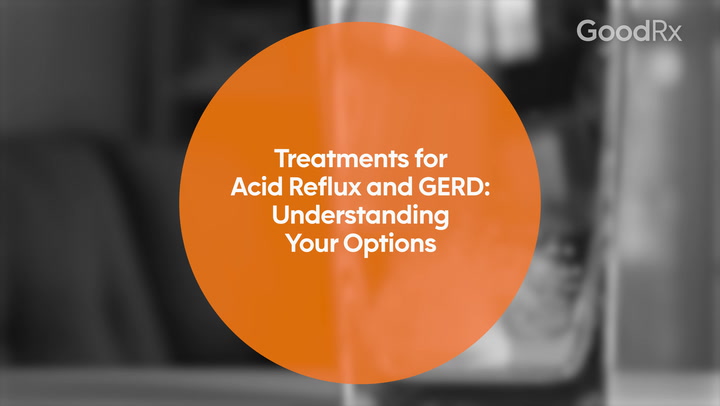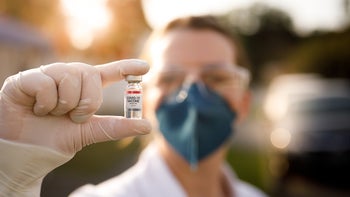
How to Save on Biosimilars for Humira, Remicade, and Stelara
Key takeaways:
Biologic treatments are medications derived from living or natural sources instead of chemicals. Rather than generics, biologics have biosimilars that are nearly identical to their reference drug and generally cost less.
Humira (adalimumab), Remicade (infliximab), and Stelara (ustekinumab) are biologic injectable medications that have biosimilars. These medications are approved to treat autoimmune and inflammatory disorders such as rheumatoid arthritis, Crohn’s disease, and psoriasis.
Biosimilars generally cost less than their reference biologics. Switching to a biosimilar drug can help reduce your out-of-pocket costs.
Table of contents

Humira (adalimumab), Remicade (infliximab), or Stelara (ustekinumab) are injectable, biologic medications that treat autoimmune disorders. If you have been prescribed a biologic, you may be wondering if there is a lower-cost version. The cost of these medications prevents some people from using them as prescribed — or at all.
Biologic medications come from living or natural sources — not simple chemicals. Because of their complex production process, biologics don’t have generic versions; they have biosimilars, which are nearly the same as their reference (original) medication.
Many people are able to afford their prescriptions because they can take generic medications. Biosimilars are important for savings because a small group of biologics and specialty medications account for more than half of all drug spending in the U.S., even though they are less than 3% of the medications prescribed.
Humira, Remicade, and Stelara are biologics that have biosimilars. There are also some interchangeable biosimilars that have received additional FDA approval. The approval allows your pharmacy, in some states, to substitute an interchangeable biosimilar for a biologic without contacting your prescriber. Humira and Stelara have interchangeable biosimilars, but Remicade does not.
You can find out if a biologic has a biosimilar available by using the FDA’s biosimilar product information search tool.
How much money do you save by using biosimilars?
Biologic medications can be unaffordable for many people — and so can their biosimilars. How much you save depends on the medication, whether you have insurance, and if you qualify for discounts.
At the time of launch, the average biosimilar price is more than 50% lower than the price of its reference (“brand-name”) biologic. In addition, the increased competition from biosimilars has forced biologics manufacturers to lower their prices. Biosimilars saved U.S. consumers more than $9 billion in 2022.
Some biosimilar manufacturers also offer copay cards to reduce out-of-pocket costs for people with health insurance and patient assistance programs to make medication affordable for people who are underinsured or without insurance.
Humira savings
For years, Humira was the world’s best-selling pharmaceutical and was only displaced from the top spot during the pandemic by Comirnaty, the Pfizer-BioNTech COVID-19 vaccine.
More than two decades after Humira entered the market, it lost its patent monopoly in 2023. Nine Humira biosimilars launched in the U.S. that year, including two interchangeables, and the prices of half of them significantly reduced consumer costs. Competition from these less-costly biosimilars are expected to cut future Humira sales and increase consumer savings. Some insurance formularies have dropped Humira in favor of biosimilars, so your savings will depend on your insurance.
It’s important to note that biosimilars may not be approved for all the conditions that Humira can treat. Humira treats many autoimmune disorders. Here are some of them:
As of January 2024, the list price of Humira — without negotiations or discounts — was $6,923 for a 4-week supply. AbbVie, the drug manufacturer, currently has a pop-up on its website telling consumers that the company can help if your insurance coverage for Humira has changed.
AbbVie savings programs
AbbVie, the manufacturer of Humira, offers these programs to help with out-of-pocket costs:
Copay assistance: Eligible consumers with commercial insurance may be able to pay as little as $0 per month with a Humira Complete savings card. You will need to enroll in the Humira Complete program to receive your Humira Complete savings card and present it to your pharmacy to receive the discount.
Rebate assistance: If your pharmacy does not accept your savings card, you may be able to get a Humira for as little as $0 a month through a rebate for the amount you paid out of pocket for your prescription. To learn more, call 1-800-448-6472 and speak to an insurance specialist.
Uninsured or limited coverage: If you don’t have health insurance or have a difficult time paying for Humira, you may qualify for the myAbbVie Assist, which provides medications at no cost to eligible consumers.
GoodRx: A GoodRx coupon can help you save money on Humira.
Other patient assistance programs
Financial help is available for people who need Humira from the following resources:
PAN Foundation: This organization offers grants to help pay for Humira for people with certain conditions. Use the search tool to find your condition and see if the fund is open for applications.
Patient Advocate Foundation: This foundation provides help with out-of-pocket medical costs for at least one condition that Humira treats.
The Assistance Fund: This patient assistance organization provides help with out-of-pocket medical costs for several conditions that Humira treats.
If you have a Medicare Part D prescription plan, you pay nothing out of pocket for covered medications for the rest of the year once you reach the catastrophic phase. That out-of-pocket spending threshold is $8,000 in 2024.
Humira biosimilars and savings
Nine Humira biosimilars entered the market in 2023:
Abrilada, which is interchangeable with Humira
Cyltezo, which is interchangeable with Humira
Humira biosimilar savings programs
Patient assistance programs | Copay assistance programs |
Pfizer enCompass for copay assistance | |
Amgen Support+ for copay assistance | |
Hadlima For You savings program for copay assistance and free medications for eligible consumers | |
Hulio 360 for copay assistance | |
Sandoz One Source for copay assistance | |
KabiCare for copay assistance and free medications for eligible consumers. | |
Celltrion Cares for copay assistance and Celltrion Connect for free medications available to eligible consumers | |
Yusimry Solutions for copay assistance |
The companies that make Humira biosimilars also have programs to help you switch to their medications. The patient assistance programs listed for Humira may be able to help you afford a biosimilar medication for your condition. You should talk to your healthcare team, including specialist physicians and pharmacists, about the medication that is best for you.
What's more, anyone with a valid prescription can use GoodRx to purchase two adalimumab-adbm pens at an exclusive cash price of $550. This is the unbranded version of Cyltezo.
Remicade savings
Remicade is another biologic that treats autoimmune disorders such as:
Ankylosing spondylitis
Crohn’s disease
Ulcerative colitis
Psoriatic arthritis
Rheumatoid arthritis
Remicade is an infusion administered by your healthcare professional, so there are no GoodRx coupons for this medication.
Remicade savings programs
Janssen Biotech, the manufacturer of Remicade, offers these programs to help consumers with out-of-pocket costs:
Copay assistance: Eligible consumers with private or commercial health insurance may be able to pay as little as $5 per infusion with a $20,000 maximum benefit annually through the Janssen CarePath savings program. You can also call 1-877-227-3728 for assistance. People covered by Medicare, Medicaid, or another government program do not qualify.
Insured but it’s unaffordable: If you are covered by any type of health insurance, but still can’t afford Remicade, you may qualify for the Janssen Patient Assistance Program, which provides medications at no cost for up to 1 year. This program has income requirements.
Uninsured: If you don’t have health insurance, you may qualify for the Johnson & Johnson Patient Assistance Foundation, which provides medications at no cost to eligible consumers. Remicade is one of the covered medications.
Other patient assistance programs
Financial help is available for people who need Remicade from the following resources:
PAN Foundation: This organization offers grants to help pay for Remicade for people with certain conditions. Use the search tool to find your condition and see if the fund is open for applications.
Patient Advocate Foundation: This foundation provides help with out-of-pocket medical costs for at least one condition that Remicade treats.
The Assistance Fund: This patient assistance organization provides help with out-of-pocket medical costs for several conditions that Remicade treats.
As mentioned earlier, Medicare Part D prescription plans will cover your out-of-pocket costs-for the rest of the year once you reach the catastrophic phase or $8,000 in out-of-pocket spending.
Remicade biosimilars and savings
There are three Remicade biosimilars available in the U.S., but none are interchangeable with Remicade:
Though not technically a biosimilar, Zymfentra — a version of infliximab that you inject under the skin at home — also was approved in 2023.
Remicade biosimilar savings program
Patient assistance programs | Copay assistance programs |
Amgen Support+ for copay assistance and free medications for eligible consumers | |
Pfizer enCompass for copay assistance | |
Organon Access Program for copay assistance and free medications for eligible consumers |
The companies that make Remicade biosimilars also have programs to help you switch to their medications. The patient assistance programs listed for Remicade may be able to help you afford a biosimilar medication for your condition. You should talk to your healthcare professionals, including specialist physicians and pharmacists, about the medication that is best for you.
Stelara savings
Stelara is another biologic. It’s approved to treat conditions including:
Crohn’s disease
Ulcerative colitis
Plaque psoriasis
Psoriatic arthritis
Stelara is an injectable medication given at a clinic or at home. One injection can cost between $25,000 and $30,000.
Stelara savings programs
Jannsen Biotech, Stelara’s manufacturer, offers these programs to help consumers with out-of-pocket costs:
Copay assistance: Eligible people with private or commercial health insurance may be able to pay as little as $5 per dose through the Stelara With Me savings program. You can also call 1-844-494-8463 for assistance. People covered by Medicare, Medicaid, or another government program do not qualify.
Rebate assistance: If you can’t use the copay assistance, you may be able to get a Stelara rebate for your out-of-pocket spending up to as much as $6,000 a year. To learn more, call 1-844-494-8463.
Insured but it’s unaffordable: If you are covered by any type of health insurance, but still can’t afford Stelara, you may qualify for the Janssen Patient Assistance Program, which provides medications at no cost for up to 1 year. This program has income requirements.
Uninsured: If you don’t have health insurance, you may qualify for the Johnson & Johnson Patient Assistance Foundation, which provides medications at no cost to eligible consumers. Stelara is one of the covered medications.
GoodRx: A GoodRx coupon can help you save money on Stelara.
Other patient assistance programs
Financial help is available for people who need Stelara from the following resources:
PAN Foundation: This organization offers grants to help pay for Stelara for people with certain conditions. Use the search tool to find your condition and see if the fund is open for applications.
Patient Advocate Foundation: This foundation provides help with out-of-pocket medical costs for at least one condition that Stelara treats.
The Assistance Fund: This patient assistance organization provides help with out-of-pocket medical costs for several conditions that Stelara treats.
As mentioned earlier, Medicare Part D prescription plans will cover your costs for the rest of the year once you reach the catastrophic phase or $8,000 in out-of-pocket expenses.
Stelara biosimilar
In 2023, the FDA approved Wezlana, the first biosimilar for Stelara, and it’s also interchangeable. Wezlana may not be available in pharmacies until the later part of 2024 because of a lawsuit settlement that delayed the launch. You should talk to your medical team, including doctors and pharmacists, about the medication that is best for you.
The bottom line
Humira (adalimumab), Remicade (infliximab), and Stelara (ustekinumab) can cost thousands of dollars for just one package. For Humira and Stelara, you can save with a GoodRx coupon. You can find deeper savings through manufacturer discounts such as copay assistance cards, rebates, and patient assistance programs.
You may be able to slash your costs in half — or even more — by using a biosimilar, which is a biologic alternative. Like the biologics they mimic, biosimilars available for Humira and Stelara have their own copay cards as well as patient assistance programs that may allow you to access free medications. The biosimilar manufacturers can also help you switch to their medication.
Some biosimilars have been deemed interchangeable by the FDA. But it’s important to note that not all biosimilars have been approved for all the conditions that the reference or original biologic is cleared to treat.
Why trust our experts?



References
Allen, A. (2023). The market for biosimilars is funky. The industry thinks PBMs are to blame. The Washington Post.
Association for Accessible Medicines. (2023). Generic and biosimilar drugs generate $408 billion in savings for America’s patients and health-care system in 2022.
Association for Accessible Medicines. (2023). The U.S generic & biosimilar medicines savings report September 2023.
Buntz, B. (2023). The 50 best-selling pharmaceuticals of 2022: COVID-19 vaccines poised to take a step back. Drug Discovery & Development.
Dunleavy, K. (2023). After patent settlement, Amgen scores FDA nod for its biosimilar version of J&J's Stelara. Fierce Pharma.
Fein, A. J. (2024). The big three PBMs’ 2024 formulary exclusions: Biosimilar Humira battles, CVS Health’s weird strategy, and the insulin shakeup. Drug Channels Institute.
Humira. (n.d.). Cost & savings.
Immad, L. (2023). 5 most profitable drugs In the world. Insider Monkey.
Jeremias, S. (2023). FDA approves first subcutaneous infliximab product. The Center for Biosimilars.
Kyle, L. (2024). Biosimilars to watch in 2024. RxBenefits.
Medicare.gov. (n.d.). Catastrophic coverage.
Murphy, T. (2023). Cheaper competition for Humira is hitting the market, but savings will depend on your insurance. Associated Press.
U.S. Food and Drug Administration. (2023). Biosimilar product information.
U.S. Food and Drug Administration. (2023). FDA approves interchangeable biosimilar for multiple inflammatory diseases.
Walker, L., et al. (2023). AbbVie's blockbuster drug Humira finally loses its 20-year, $200 billion monopoly. NPR.
Wingrove, P. (2023). New Humira rivals likely to hit US market with small discounts in July. Reuters.
Wingrove, P. (2024). CVS will remove AbbVie's Humira from some drug reimbursement lists in April. Reuters.
Was this page helpful?
Related Articles
Browse medications
View AllResearch prescriptions and over-the-counter medications from A to Z, compare drug prices, and start saving.

























